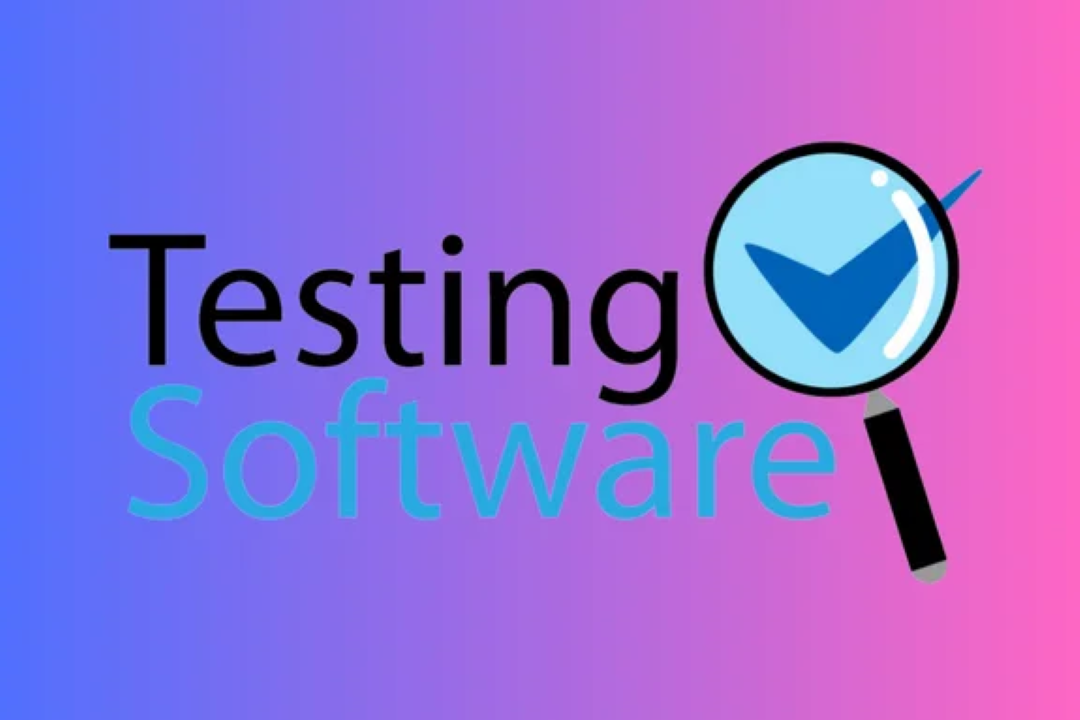Selenium Course In Adyar
The Selenium Automation Testing Course in Adyar offers participants a comprehensive introduction to
Selenium Course In Adyar
The Selenium Automation Testing Course in Adyar is designed to equip aspiring software testers with essential skills in automated testing. As businesses increasingly rely on digital solutions, the demand for automation testing professionals is on the rise. This course provides in-depth knowledge of Selenium, covering key aspects such as test script creation, handling dynamic web applications, and implementing best practices for testing. By engaging in real-time projects, participants gain practical experience, making them job-ready and enhancing their employability in a competitive market. Completing this course not only bolsters one's technical expertise but also opens up numerous career opportunities in the thriving field of quality assurance and software testing.
To Download Our Brochure: https://www.justacademy.co/download-brochure-for-free
Message us for more information: +91 9987184296
The Selenium Automation Testing Course in Adyar is designed to equip aspiring software testers with essential skills in automated testing. As businesses increasingly rely on digital solutions, the demand for automation testing professionals is on the rise. This course provides in depth knowledge of Selenium, covering key aspects such as test script creation, handling dynamic web applications, and implementing best practices for testing. By engaging in real time projects, participants gain practical experience, making them job ready and enhancing their employability in a competitive market. Completing this course not only bolsters one's technical expertise but also opens up numerous career opportunities in the thriving field of quality assurance and software testing.
Course Overview
The Selenium Course in Adyar offers a comprehensive overview of automation testing using the Selenium framework, tailored for individuals seeking to enhance their skills in quality assurance. This course covers essential topics such as an introduction to automation testing, setting up the Selenium environment, writing and executing test scripts, and implementing procedures for testing dynamic web applications. Participants will engage in hands-on learning through real-time projects, allowing them to apply concepts practically and gain valuable experience. By the end of the course, attendees will possess the knowledge and confidence to pursue careers in automation testing, making them competitive candidates in the technology workforce.
Course Description
The Selenium Course in Adyar is designed for individuals seeking to master automation testing using the widely acclaimed Selenium framework. This hands-on course covers fundamental to advanced topics, including test automation principles, Selenium WebDriver, test script creation, integration with TestNG, and frameworks like Page Object Model. Participants will gain practical experience through real-time projects that simulate industry scenarios, equipping them with the skills required to automate web applications effectively. By the end of the course, attendees will not only understand Selenium's capabilities but also be well-prepared to contribute to software quality assurance initiatives in their professional careers.
Key Features
1 - Comprehensive Tool Coverage: Provides hands-on training with a range of industry-standard testing tools, including Selenium, JIRA, LoadRunner, and TestRail.
2) Practical Exercises: Features real-world exercises and case studies to apply tools in various testing scenarios.
3) Interactive Learning: Includes interactive sessions with industry experts for personalized feedback and guidance.
4) Detailed Tutorials: Offers extensive tutorials and documentation on tool functionalities and best practices.
5) Advanced Techniques: Covers both fundamental and advanced techniques for using testing tools effectively.
6) Data Visualization: Integrates tools for visualizing test metrics and results, enhancing data interpretation and decision-making.
7) Tool Integration: Teaches how to integrate testing tools into the software development lifecycle for streamlined workflows.
8) Project-Based Learning: Focuses on project-based learning to build practical skills and create a portfolio of completed tasks.
9) Career Support: Provides resources and support for applying learned skills to real-world job scenarios, including resume building and interview preparation.
10) Up-to-Date Content: Ensures that course materials reflect the latest industry standards and tool updates.
Benefits of taking our course
Functional Tools
1 - Selenium WebDriver
Selenium WebDriver is the core component of the Selenium suite used for automating browser actions. It provides a programming interface to create and execute test scripts in various programming languages like Java, C#, and Python. This tool mimics real user interactions with web applications, allowing testers to verify functionalities, check for performance issues, and ensure that web applications function correctly across different browsers. WebDriver's ability to interact with the browser directly makes it the preferred choice for most automation tasks and is a focal point of the training program.
2) Selenium IDE
The Selenium Integrated Development Environment (IDE) is a user friendly tool designed for those new to automation testing. It offers a record and playback feature that allows testers to record their interactions with a web application and convert these interactions into test scripts. This is particularly useful for beginners in the Selenium Course in Adyar, as it facilitates a hands on understanding of how automated tests are structured and executed, bridging the gap between theory and practical experience.
3) TestNG
TestNG is a powerful testing framework used with Selenium to enhance the testing process. It provides various features such as test grouping, prioritization, parameterization, and data driven testing. The framework is designed to simplify end to end testing from management to reporting, making it easier for students to organize and execute their test cases effectively. TestNG also supports parallel execution of tests, which is crucial for speeding up the testing process, an essential aspect taught in the course.
4) Maven
Maven is a build automation tool utilized in conjunction with Selenium WebDriver to manage project dependencies and build processes. It simplifies the process of integrating libraries, managing project structures, and deploying applications, streamlining the development and testing workflow. In the Selenium Course in Adyar, students learn how to configure Maven to automatically download necessary dependencies, ensuring a consistent and efficient environment for running tests.
5) Cucumber
Cucumber is a widely used Behavior Driven Development (BDD) tool that allows testers to write test cases in natural language. It promotes collaboration between technical and non technical stakeholders by enabling them to understand and contribute to test scenarios. In the training program, students are taught how to implement Cucumber with Selenium to create clear and understandable test scripts, facilitating better communication within development teams and improving overall project quality.
6) Jenkins
Jenkins is an open source automation server that facilitates continuous integration and continuous delivery (CI/CD) processes. In the context of the Selenium Course in Adyar, students learn how to configure Jenkins to automate the execution of test suites, ensuring that applications are tested every time code changes are made. This tool is essential for maintaining quality in agile development environments, helping teams to quickly identify and address defects as they arise.
The integration of these tools creates a robust knowledge base for students, equipping them with the necessary skills to deploy effective automated testing practices in their careers. Through detailed training on each tool's functionalities, students gain comprehensive insights into the automation testing landscape, ultimately preparing them to face industry challenges confidently.
Certainly! Here are additional points detailing more tools and concepts associated with Selenium and the automation testing field that would be beneficial for the Selenium Course at JustAcademy:
7) Page Object Model (POM)
The Page Object Model is a design pattern that enhances test maintenance and reduces code duplication. By representing each page of the application as an object, POM allows testers to centralize the elements and actions associated with that page in a single class. In the Selenium Course in Adyar, students learn how to implement POM, enabling them to write cleaner test scripts that are easier to maintain and update as the application evolves.
8) Robot Class
The Robot Class is a part of the Java AWT package and is used for automating keyboard and mouse actions. It provides control over low level input events, which is particularly useful for interactions that require more granular control, such as handling files dialog or performing keyboard shortcuts. In the course, students explore the capabilities of the Robot Class, allowing them to extend their automation abilities beyond browser interactions.
9) API Testing with RestAssured
While Selenium primarily focuses on UI testing, API testing is a crucial aspect of software quality assurance. RestAssured is a Java library that simplifies testing RESTful web services. In the training program, students learn how to integrate API testing with their Selenium tests, allowing for comprehensive end to end testing that includes both the front end interface and back end services, crucial for a well rounded understanding of web application testing.
10) Browser Developer Tools
Understanding browser developer tools is essential for automation testers. These tools provide insights into the DOM structure, network activity, and performance metrics of web applications. Students in the Selenium Course at JustAcademy learn how to effectively use these tools for debugging and optimizing their automated tests, ensuring their scripts interact with elements as expected under differing conditions.
11 - Dynamic Locators
Dealing with dynamic elements on web pages can be challenging. Students are taught different strategies for handling dynamic locators, such as using XPath or CSS selectors that can adapt when element attributes change. This knowledge is crucial for maintaining the reliability of automated tests in responsive and frequently updated web applications.
12) Handling Alerts, Pop ups, and Windows
Testing web applications often involves interacting with alerts, pop ups, and multiple browser windows/tabs. The course covers best practices for handling these elements using Selenium methods like `switchTo()` and `accept()`, equipping learners with the skills to create robust test scripts that navigate complex user interfaces.
13) Screenshot and Reporting
Capturing screenshots during test execution is vital for documentation and proof of failures. Tools like Allure or ExtentReports can be integrated into Selenium tests to generate reports that include screenshots, logs, and statistics. In the course, students learn how to implement these reporting tools, allowing them to provide detailed feedback, which is essential for debugging and improving test practices.
14) Performance Testing Integration
While Selenium is primarily for functional testing, it can be integrated with performance testing tools like JMeter to assess how web applications behave under different load conditions. Students are introduced to concepts of performance testing and how to leverage Selenium in conjunction with these tools to ensure the application can handle expected user traffic without performance degradation.
15) Version Control with Git
Familiarity with version control systems like Git is vital for any software development lifecycle. Students learn how to use Git to manage their Selenium test code, facilitating collaboration, version tracking, and maintenance of their automation projects. This knowledge also provides insight into best practices for software development in team environments.
16) Test Automation Best Practices
The course emphasizes best practices for test automation, including test case design, scripting standards, and maintenance strategies. Students are guided on how to write maintainable and scalable test scripts, focusing on aspects like clear naming conventions, modular code, and efficient exception handling, helping them establish habits that contribute to high quality automation deliverables.
Each of these areas enhances the practical skill set of students enrolled in the Selenium Course at JustAcademy, preparing them to tackle real world software testing challenges effectively. The comprehensive curriculum ensures that learners are well rounded and proficient in both the theoretical and practical aspects of test automation.
Browse our course links : https://www.justacademy.co/all-courses
To Join our FREE DEMO Session:
This information is sourced from JustAcademy
Contact Info:
Roshan Chaturvedi
Message us on Whatsapp:
Email id: info@justacademy.co












